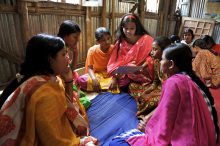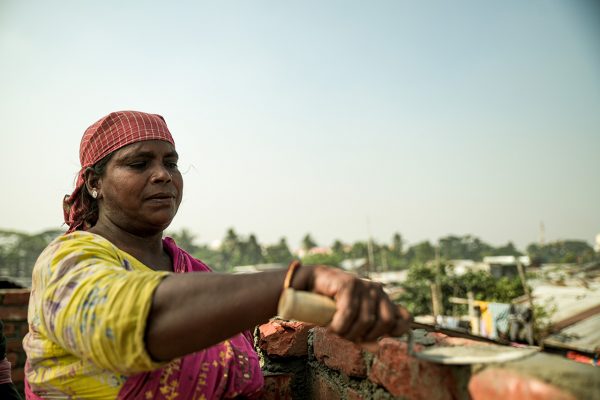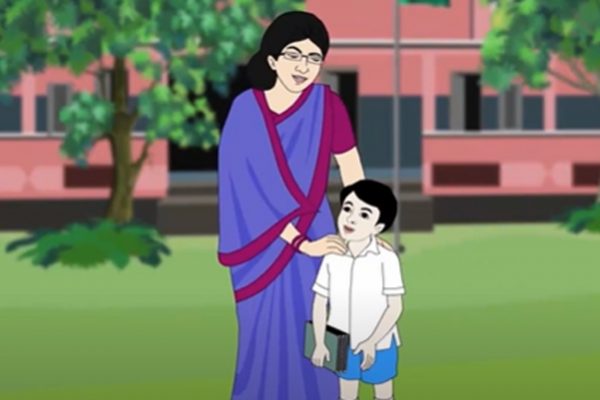Reading Time: 2 minutes
According to UNESCO, South Asia is home to 335 million adolescents between the ages of 10-19 years, but only 51 per cent attend secondary school. Schooling is important for realising the full potential of learning in adolescence. However, simply increasing the number of students enrolled at school may not be enough in countries where teachers are poorly trained or not even present to teach in the classroom. Inadequate school quality combined with household poverty may limit the potential gains from schooling.
According to UNESCO, South Asia is home to 335 million adolescents between the ages of 10-19 years, but only 51 per cent attend secondary school. Schooling is important for realising the full potential of learning in adolescence. However, simply increasing the number of students enrolled at school may not be enough in countries where teachers are poorly trained or not even present to teach in the classroom. Inadequate school quality combined with household poverty may limit the potential gains from schooling.
Although Bangladesh has made huge strides in bringing adolescent children to secondary schools (particularly girls), there is concern that those who are enrolled do not learn much. A recent report on student learning in South Asia notes that up to one-third of the young adolescents completing primary school lack basic numeracy and literacy skills.
At BRAC’s research and evaluation division (RED), we examined the link between cognitive development of adolescents and school attendance in rural Bangladesh. We did this by assessing how the level of learning changes across the schooling cycle as we compare adolescents with low and high schooling. Collected in 2012, the data used comes from over 4,000 adolescents (aged 11-16 years) from 31 remote sub-districts in north and eastern parts of Bangladesh. Since we went to very poor areas, we focused on lower order cognitive skills, meaning one’s ability to do basic mathematics and ability to read two simple sentences in Bangla and English.
We found that among adolescents who have completed five years of schooling (ie, primary school graduates), 30 per cent do not have basic numeracy skills while 33 per cent and 66 per cent cannot read two simple sentences in Bangla and English respectively. Thus the evidence indicates that a large proportion of adolescents continue post-primary schooling in order to attain these basic numeracy and literacy skills, even though they are supposed to have achieved this by the end of primary schooling. These findings are consistent with earlier studies conducted in rural Bangladesh, indicating a serious learning crisis as is evident from such a relatively flat schooling-learning profile.
Differences in cognitive outcomes across adolescents can be driven by a host of non-schooling factors such as household poverty and health shocks. Compared to children living in the richest households, children who live in the poorest households in South Asia are three times less likely to receive a secondary education. It is also possible that much learning is lost (ie, lessons forgotten) following dropout from school. But our conclusion remains unchanged even after accounting for differences in adolescent characteristics (ie, as gender, health status, age and school dropout status), characteristics of their households (ie, head’s education and occupation, whether the household has electricity and a permanent latrine), or if it is a makeshift house.
Adolescence is a time of enormous potential for cognitive development. Yet our research shows that the assumption about schooling helping young adolescents acquire critical skills such as literacy is misplaced. The current single-focused approach of enrolling and retaining adolescents in schools is unlikely to prepare them for employment and adult life. RED’s research conducted on behalf of BRAC’s adolescent development programme adds to the growing body of evidence on inadequate education, and clearly highlights the need to re-emphasise quality of schooling in rural Bangladesh.
M Niaz Asadullah is professor of development economics and deputy director of the Centre for Poverty and Development Studies (CPDS) at the University of Malaya.
Md Abdul Alim is research fellow at BRAC Afghanistan.
Fathema Khatoon is senior research associate at BRAC Research and Evaluation Division.






